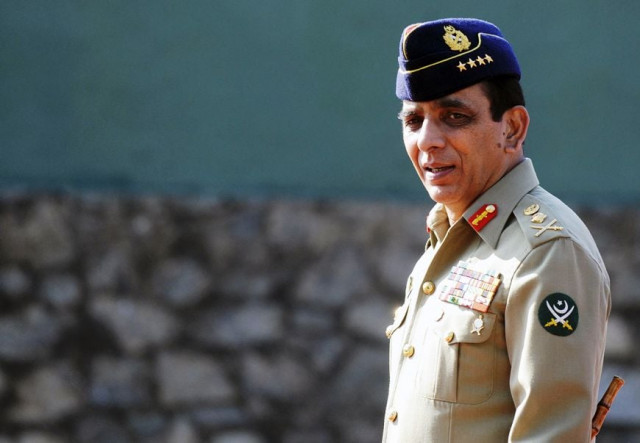Wikileaks: Kayani wanted more drone strikes in Pakistan
Cables obtained state that Kayani was requesting the US for greater drone back-up.

According to cables , the US account of Kayani’s request for “Predator coverage” does not make clear if mere air surveillance were being requested or missile-armed drones were being sought.
According to the report of the meeting sent back to Washington by Patterson, Admiral Fallon “regretted that he did not have the assets to support this request” but offered trained US Marines (known as JTACs) to coordinate air strikes for Pakistani infantry forces on ground. General Kayani “demurred” on the offer, pointing out that having US soldiers on ground “would not be politically acceptable.”
As reported earlier in The Express Tribune, WikiLeaks cables revealed that Prime Minister Yousaf Raza Gilani allowed drone strikes in the tribal areas of Pakistan, saying they would protest the attacks in the National Assembly and then ignore them.
When Interior Minister Rehman Malik advised the US to hold off “alleged Predator attacks until after the Bajaur operation”, Gilani brushed off the remarks saying:
I don’t care if they do it as long as they get the right people. We’ll protest in the National Assembly and then ignore it.
According to a leaked cable published on NDTV, in an earlier meeting on January 9, 2008 with Codel Lieberman, Chief of Army Staff (COAS) Kayani agreed that increased training and exercises with the US would be of great value, but urged that US-Pakistan military engagement remain low-key for domestic political reasons. Lieberman underscored need for Pakistan to hold free, fair elections in February.
They also discussed the need to add a humanitarian aspect to Pakistan's counterinsurgency strategy. Kayani noted four areas in which the Army was requesting technical assistance.
A cable dated February 19, 2009 sates:
The strikes have put increasing political pressure on the Pakistani government, which has struggled to explain why it is allowing an ally to violate its sovereignty. The GOP so far has denied recent media reports alleging that the U.S. is launching the strikes from bases in Pakistan. Kayani knows full well that the strikes have been precise (creating few civilian casualties) and targeted primarily at foreign fighters in the Waziristans. He will argue, however, that they undermine his campaign plan, which is to keep the Waziristans quiet until the Army is capable of attacking Baitullah Mehsud and other militants entrenched there.
The cable states that Anne Patterson remarks that "Kayani is often direct, frank, and thoughtful. .. is an avid golfer, he is President of the Pakistan Golf Association. He smokes heavily and can be difficult to understand as he tends to mumble.
The full text of the cables can be read on Dawn.com, The Hindu and NDTV. WikiLeaks has previously released cables to other media organisations including Guardian and the New York Times.



















COMMENTS
Comments are moderated and generally will be posted if they are on-topic and not abusive.
For more information, please see our Comments FAQ